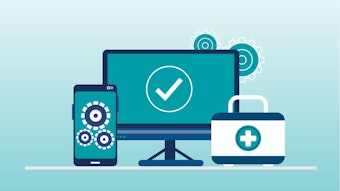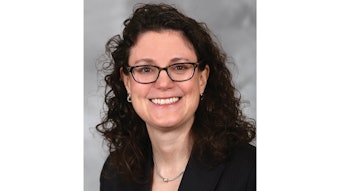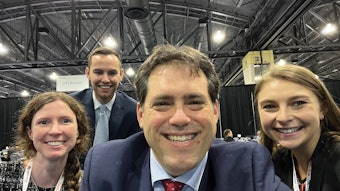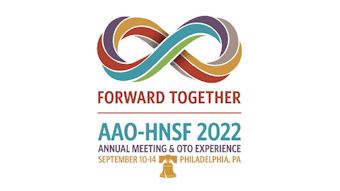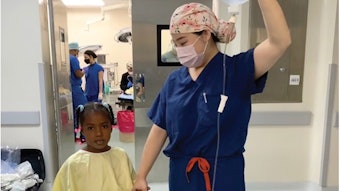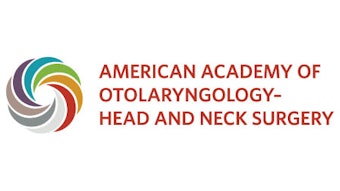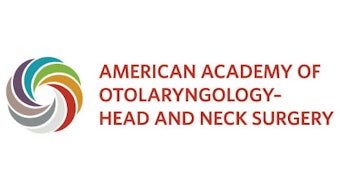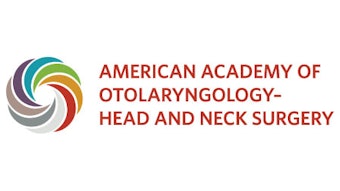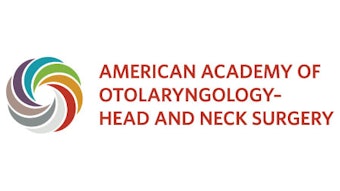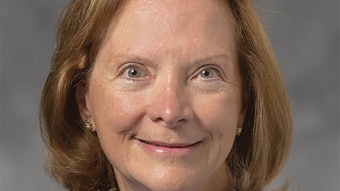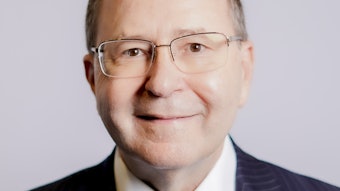Impacting the Next Generation – Why I Choose to Mentor
Many high school students are not exposed to careers in medicine and do not have doctors who can take time out of their day, be a mentor, and invest in their lives.
Matthew M. Smith, MD, MPH, Young Physicians Section Secretary
 HELP graduate, Zakiyah Willis (left), with HELP cofounder, Matthew M. Smith, MD, MPH.
HELP graduate, Zakiyah Willis (left), with HELP cofounder, Matthew M. Smith, MD, MPH.
From undergraduate studies to a pediatric otolaryngology fellowship, I was fortunate to have numerous individuals spend time with and counsel me on how to advance to the next stage of my career. Without these selfless individuals making the decision to invest their time and impart their wisdom, I would have never had the opportunity to become a pediatric otolaryngologist. Having been involved in the Section for Residents and Fellows-in-Training as a fellow and now the Young Physicians Section as an early career physician, I know how committed the Academy is to providing mentors and networking events for medical students, residents, fellows, and early career physicians. But how do teenagers and young adults obtain mentorship and guidance in choosing to pursue a career in medicine?
Many high school students are not exposed to careers in medicine and do not have doctors who can take time out of their day, be a mentor, and invest in their lives. For this reason, in 2020, Tara N. Calhoun, MD, and I founded HELP (Healthcare ExpLoratory Program). We partnered with a local nonprofit, Cincinnati Youth Collaborative, to introduce our program in local high schools in Cincinnati, Ohio. Our goal was to invest in urban high school students, expose them to various medical careers, and provide them with career mentorship. By providing these high school students with the tools to succeed and open doors to shadowing and research opportunities, we demonstrated to them that a career in medicine is attainable. One of our early graduates, Zakiyah Willis, is now enrolled in premed studies at the University of Cincinnati and spent this past summer shadowing Tara and me at Cincinnati Children’s Hospital. During a recent time at the hospital, she said, “I never saw myself as a surgeon because there aren’t many people who look like me in medicine, but I think this is what I want to do with my career.” Unfortunately, she is correct about underrepresentation—around 5% of physicians in the United States are Black, and even fewer physicians are otolaryngologists (less than 1% of otolaryngologists are Black). Until physicians and otolaryngologists invest in our middle and high school students, we will continue to see poor representation within the house of medicine. Whether it be through a program such as Doctor for a Day (at University of Washington under the leadership of surgeon Estell Williams, MD) or others that might exist around your area, I would encourage you to invest your time and demonstrate to students that medicine is an attainable career and one in which they can succeed. Not only will students be empowered to pursue a career they might not have previously considered, but they will do so with a mentor and ally cheering them onto success.
By connecting and investing in the next generation, we not only cultivate the future of medicine and otolaryngology, but, most importantly, we grow as individuals. Mentoring benefits both mentor and mentee. As mentors, we learn to be more effective communicators. We learn about systemic barriers that are in place and thus can work toward eliminating their existence. We increase our empathy and learn from individuals with different life experiences. We also gain satisfaction in the relationships that are created. These reasons and more are why I choose to be a mentor and encourage you to do so as well.
